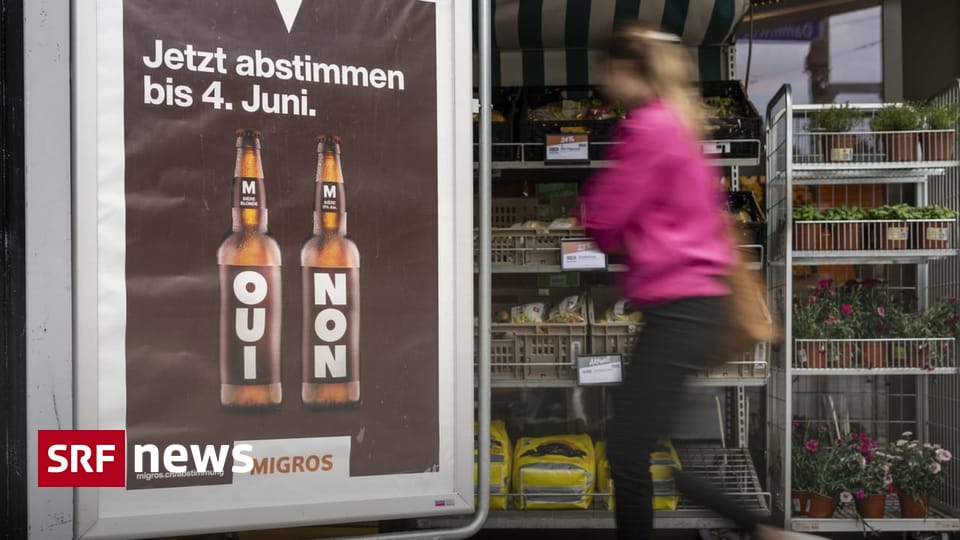- Nearly 2.3 million cooperative members are voting for a three-week period on whether Migros is allowed to sell alcohol.
- Voting is still possible today – either in person at the branch or by mail.
- The result of the vote will not be announced until the middle of the month. When less than two-thirds endorse alcohol sales, everything remains the same.
In Migros, the vote on whether or not to sell alcohol is right at home. According to Migros, as of next Tuesday, June 7, the voting cards received will be counted and checked and confirmed by an auditor. After that, the “orange giant” will announce the result of the vote in mid-June.
When more than two-thirds of voters support the sale of alcohol, the amended laws will enter into force on July 1, 2022. According to the corresponding principle, the alcohol aisle should be deleted; Migros will no longer refrain from selling tobacco products. The wholesaler expects to start selling beer, wine and spirits next year.
The vote on selling alcohol gave Migros something to talk about. The National Prevention Organization Sucht Schweiz immediately launched a campaign against this commercial development by Migros: with about 900 additional outlets, selling alcohol in Migros would significantly increase alcohol-related problems in Switzerland, she wrote on its website. Herbert Poliger, former Migros president, also rallied against the sale of alcoholic beverages because, in his opinion, Migros’ values would be weakened.
“Alcohol Capitalism”
The ban on alcohol in Migros, founded in 1925, has been in effect since 1928. It was enacted by Migros founder Gottlieb Dettweiler to protect public health and to combat “strong alcohol capitalism”. Destructive alcohol habits drive people into poverty. In fact, alcoholism was widespread in Switzerland at the time.
In 1948, Datweiler himself held a vote on the alcohol ban that was implemented. Co-operative members supported it with 52.4 per cent.
Changing consumption habits
Since 1983, the prohibition has also been enshrined in the statutes of regional cooperatives – with the exception of Geneva. Co-operative councils are assigned to the administrations or departments of the ten Migros in the regions. They show a split image. However, no one is against the abolition of the ban. The cooperatives of the regions of Geneva, Neuchâtel, Fribourg and Ry decided to vote.
Representatives of the Federation of Cooperatives have already backed alcohol sales by a two-thirds majority. The administration justifies the exit from the ban by changing social status and changing consumption habits. The argument goes that if customers bought alcohol from a wholesaler, they would also take their groceries with them there. Migros is missing a significant part of the cart.
In the fierce competition for retail, liquor advocates see Migros as having a significant competitive disadvantage. Coop, Lidl, Aldi and online trading breathe in Migros’ neck. Migros has already lost its top spot in Swiss retail to Coop.

“Tv expert. Hardcore creator. Extreme music fan. Lifelong twitter geek. Certified travel enthusiast. Baconaholic. Pop culture nerd. Reader. Freelance student.”





More Stories
Chocolate storm in Türkiye – the Swiss are confused
Big Topics at New UBS's First General Meeting – News
Traditional department store Globus – This is the Thai family company behind Globus – News